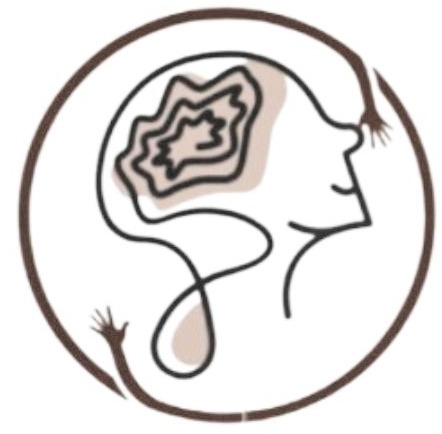
Addictions
What is Addiction?
Addiction is a complex psychological phenomenon that manifests as a compulsive need to engage in certain behaviors or consume substances, despite negative consequences. It often serves as a coping mechanism for underlying emotional pain, unresolved conflicts, or unmet psychological needs. In psychoanalysis, addiction is viewed not merely as a habit or a disease but as a symptom of deeper, often unconscious, psychological issues.
Addiction from a Psychoanalytic Perspective
From a psychoanalytic perspective, addiction can be understood as a way for individuals to manage overwhelming emotions, traumatic experiences, or unresolved internal conflicts. It is often seen as an attempt to fill an emotional void or to escape from painful feelings and thoughts. The substance or behavior that an individual becomes addicted to can serve as a substitute for unmet emotional needs, acting as a form of self-medication.
Sigmund Freud, the founder of psychoanalysis, suggested that addiction might be linked to the dynamics of the unconscious mind, where repressed desires, fears, and conflicts reside. According to this view, addictive behaviors may arise from unresolved developmental issues or unmet needs from earlier life stages. For example, an individual might turn to alcohol or drugs as a way to numb feelings of inadequacy or loneliness that stem from childhood experiences.
In psychoanalysis, the goal of treatment is to uncover and work through these unconscious conflicts and emotional wounds. By bringing these issues into conscious awareness, individuals can gain insight into the underlying causes of their addiction, develop healthier coping mechanisms, and work toward lasting recovery.
Addiction from a Relational Psychoanalysis Perspective
Relational psychoanalysis builds on traditional psychoanalytic concepts by emphasizing the importance of relationships in the development and maintenance of addiction. This approach recognizes that addiction is not just an individual problem but also a relational one, deeply intertwined with the dynamics of the individual’s relationships with others and with themselves.
Relational psychoanalysis views addiction as a way of managing or avoiding difficult emotions that arise in the context of relationships. For instance, someone who struggles with feelings of abandonment, rejection, or shame in their relationships might turn to addictive behaviors as a way to soothe or escape from these painful emotions. Addiction can also be seen as a way of maintaining a sense of control or identity when an individual feels powerless or lost in their relationships.
In therapy, the relationship between the therapist and the client becomes a key space for exploring these dynamics. The therapeutic relationship provides a safe and supportive environment where the client can explore their relational patterns, including how these patterns may contribute to their addictive behaviors. Through this exploration, the client can begin to understand how their addiction has served as a coping mechanism within their relationships and how they can develop healthier ways of relating to others and to themselves.
The Role of Unconscious Processes in Addiction
Both traditional psychoanalysis and relational psychoanalysis recognize the role of unconscious processes in addiction. These unconscious processes may include repressed memories, unresolved conflicts, and unmet needs that influence the individual’s thoughts, feelings, and behaviors. Addiction can be seen as a way of managing or avoiding these unconscious processes, providing temporary relief from the psychological distress they cause.
In therapy, the goal is to bring these unconscious processes into conscious awareness, allowing the individual to gain insight into the underlying causes of their addiction. By understanding the emotional and psychological factors that drive their addictive behaviors, the individual can begin to develop healthier ways of coping and relating to others.
Addiction as a Symptom of Deeper Issues
In both psychoanalysis and relational psychoanalysis, addiction is viewed as a symptom of deeper emotional and psychological issues. It is often a sign that something in the individual’s life or psyche is out of balance or unresolved. Whether it is unresolved trauma, unmet emotional needs, or difficulties in relationships, addiction serves as a signal that these issues need to be addressed.
Healing from Addiction: A Relational Approach
Healing from addiction is not just about stopping the addictive behavior or substance use. It involves addressing the underlying emotional and psychological issues that contribute to the addiction, as well as developing healthier ways of coping and relating to others. In relational psychoanalysis, this healing process takes place within the context of a safe and supportive therapeutic relationship.
The therapist helps the client explore their relational patterns, uncover unconscious conflicts, and understand the emotional needs that drive their addictive behaviors. Through this process, the client can begin to develop a more integrated and healthy sense of self, build stronger and more fulfilling relationships, and move toward lasting recovery.
Why Addressing Addiction Matters
Addressing addiction is crucial because it allows individuals to break free from the cycle of compulsive behaviors and reclaim control over their lives. It enables them to confront and resolve the underlying emotional and psychological issues that contribute to their addiction, leading to improved mental health, stronger relationships, and a greater sense of well-being.
In a relational psychoanalysis approach, therapy is not just about eliminating the addictive behavior but about helping the individual transform their relationship with themselves and others. It is about understanding the emotional and relational roots of addiction and developing new, healthier ways of relating to the world. This holistic approach to addiction treatment offers the possibility of deep and lasting healing, allowing individuals to move forward with greater resilience, self-awareness, and emotional freedom.
